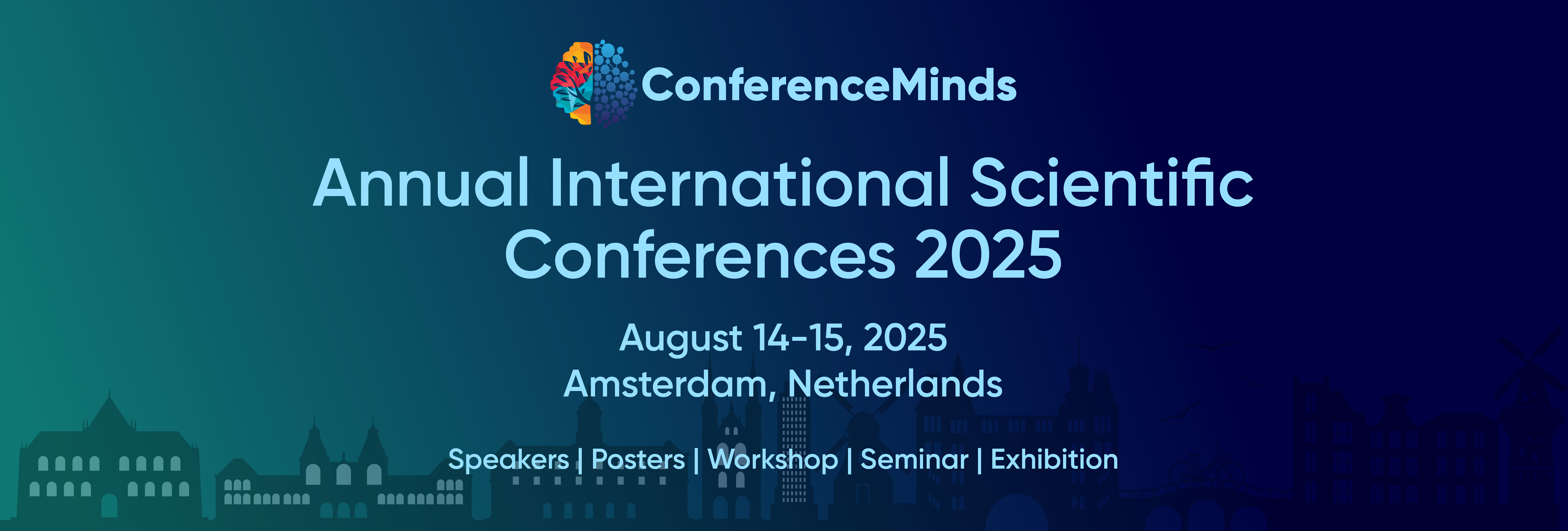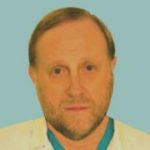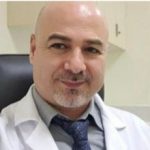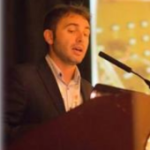Event Date
August 14-15, 2025
Venue
Amsterdam, Netherlands
– Previous Conference Performers / Professionals From Around The Globe –
Media Partners/Collaborator
A huge thanks to all our amazing partners. We couldn’t have a conference without you!



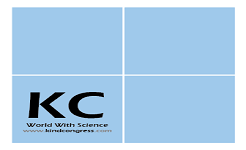



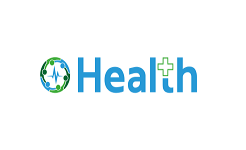


Sponsors/Exhibitors
A huge thanks to all our amazing partners. We couldn’t have a conference without you!


PEDIATRIC CONFERENCE 2025
The 30th International Conference on Pediatric and Neonatology will be held on August 14-15, 2025 in Amsterdam, Netherlands. This event is set to bring together leading experts, researchers, and healthcare professionals from around the world to discuss the latest advancements and challenges in pediatric and neonatology care. Attendees will have the opportunity to engage in insightful discussions, attend workshops, and explore cutting-edge research in the field of child health and neonatal care.
This conference aims to foster collaboration and knowledge exchange among pediatricians, neonatologists, and healthcare providers dedicated to improving child health outcomes. Topics will include pediatric surgery, neonatal intensive care, pediatric neurology, immunization, and the latest trends in pediatric research and treatment.
Theme: Excellence in Pediatrics & Neonatology
The main objective of the Pediatrics Conference 2024 to bring together pediatricians, neonatologists, experts in child development, and other specialists to exchange their ideas and knowledge between the different disciplines for facilitating research and clinical interdisciplinary collaborations
The conference themes will include the following topics: Pediatric Anesthesia, Pediatric Research, Pediatric Neurology, Pediatric Genetics, Pediatric Nursing, Pediatric Cardiology, General Pediatrics, Pediatric Otolaryngology, Pediatric Dentistry, Pediatric Gastroenterology, Neonatology, Environmental Pediatrics, Pediatric ophthalmology, Pediatric urology, Pediatric Nutrition, Pediatric Psychology, Pediatric surgery, Autism/ ADHD/ Anxiety, Pediatric obesity, Pediatric Rheumatology, Congenital Heart Disease(CHD), Pediatric Immunology, Child Nutrition and Development, Pediatric Brain Tumor, Pediatric Neonatal diseases, Pediatric Allergy, Pediatric Rehabilitation Medicine, Pediatrics Vaccines, Pediatric Dermatology, Clinical pediatrics.
This meeting will allow the attendees to acquire these new updates and share their experiences with well-recognized speakers globally. We look forward to seeing you at this meeting and we are sure you will find it an outstanding educational opportunity located in heavenly Amsterdam, Netherlands
Target Audience
- World Pediatricians
- Associations and Societies
- Business Entrepreneurs
- Case Managers
- Claims/Risk Managers
- Clinical Nurse Specialists
- Data Management Companies
- Hospital Administrators
- Hospital General Counsel
- Legal Nurse Consultants
- Medical Colleges
- Neonatal Faculty
- Neonatal Nurses/Nurse Practitioners
- Neonatal nutritionists
- Neonatal researchers
- Neonatal specialists
- Neonatologists
- Nurses
- Pediatric Dieticians
- Pediatric Faculty
- Pediatric Nutritionists
- Pediatric Physicians
- Pediatricians
- Pediatrics specialists
- Perinatal Nurses/Nurse Practitioners
- Physician Assistants
- Researchers
- Residents
- Software developing companies
- Training Institutes
- Young researchers
- YOU!
Why Attend?
With entities from around the globe concentrated on the discovery of Neonatology and its advances, this is your best chance to achieve the major assembly of associates from the Neonatal people group. Coordinate presentations, and appropriate information, meet with current and potential analysts, make a sprinkle with unused advancements and get title acknowledgment at this 2-days event. Incredibly famous speakers, the latest strategies, improvements, and the newest updates in Neonatology are the signs of this meeting.
Major Associations and Societies Worldwide:
- Academic Pediatric Association
- Academy of Medical-Surgical Nurses
- Academy of Neonatal Nursing
- Aimee’s Army Childhood Cancer Foundation
- Alex’s Lemonade Stand
- Alliance for Childhood Cancer
- Alliance of Cardiovascular Professionals
- American Academy of Nursing
- American Academy of Pediatric Dentistry
- American Academy of Pediatrics
- American Academy of Pediatrics Breastfeeding
- American Academy of Pediatrics Georgia
- American Association of Critical-Care Nurses
- American Association of Heart Failure Nurses
- American Association of Orthopedic Surgeons
- American Association of Pediatric Urologists
- American Board of Pediatrics
- American Brain Tumor Association
- American Childhood Cancer Organization
- American College of Surgeons Committee on Trauma
- American Gastroenterological Association
- American Heart Association
- American Medical Group Association
- American Pediatric Society
- American Pediatric Surgical Association
- American Pediatric Surgical Associations
- American Pediatric Surgical Nurses Association
- American Society for Echocardiography Conferences
- American Society for Gastrointestinal Endoscopy
- American Society for Parenteral and Enteral Nutrition
- American Society for Echocardiography Conferences
- American Society of Nuclear Cardiology
- American Society of Pediatric Hematology and Oncology
- American Society of Pediatric Otolaryngology
- American Society of Preventive Cardiology
- American Trauma Society
- Ashley Foundation
- Asia Pacific Pediatric Endocrine Society
- Asian Pacific Association of Gastroenterology
- ASK Childhood Cancer Foundation
- Association of Gastroenterologists of Bosnia and Herzegovina
- Association of Nurses in AIDS Care
- Association of Pediatric Hematology/Oncology Nurses
- Associations for European Pediatrics and Congenital Cardiology
- Belgian Society of Gastrointestinal Endoscopy
- Brain Tumor Foundation for Children, Inc.
- British Associations of Pediatric Surgeons
- British society for Pediatric Gastroenterology, Hepatology, and Nutrition
- British society of Gastroenterology
- Brooklyn Pediatric Society
- Bulgarian Association of Surgeons and Gastroenterologists
- Canadian Association of Gastroenterology
- Canadian Association of Interventional Cardiology
- Canadian Nurses Association
- Canadian Pediatric Society
- Canadian Pediatric Associations
- Cancer Fund of America
- Cancer Patients Aid Association
- Cardiovascular Credentialing International
- Child Health International Foundation
- Child Neurology Society
- Childhood Cancer Foundation
- Children’s Cancer Association
- Children’s Cardiology Associates, Texas
- Children’s Center for Digestive Health Care, LLC
- Children’s Leukemia Research Association
- Colorado Kids Cancer Association
- CURE Childhood Cancer Association
- Cyprus Nurses and Midwives Association
- Cyprus Society of Gastroenterology
- Czech Gastroenterological Society
- Czech Pediatric Society
- Danish Society of Gastroenterology and Hepatology
- Dutch Associations of Pediatrics
- Eastern Association for Surgery of Trauma
- Eat Right Academy of Nutrition and Dietetics
- Emirates Gastroenterology & Hepatology Society
- European Academy of Pediatric Societies
- European Academy of Pediatrics
- European Academy of Pediatrics Societies
- European Association for Gastroenterology, Endoscopy, and Nutrition
- European Association of Pediatric Education
- European Confederation of Primary Care Pediatricians
- European Pediatric Association
- European Pediatric Neurology Society
- European Pediatric surgeon’s Associations
- European Pediatric Surgeons Association
- European Society for Child and Adolescent Psychiatry
- European Society for Neonatology
- European Society for Pediatric Gastroenterology, Hepatology and Nutrition
- European Society for Pediatric Infectious Diseases
- European Society for Pediatric Neurosurgery
- European Society for Trauma & Emergency Surgery
- European Society for Traumatic studies
- European Society of Cardiology
- European Society of Gastrointestinal Endoscopy
- European Society of Intensive Care Medicine
- European society of Neuogastroenterology & Motility
- European Society of Pediatric Dermatology
- European Society of Pediatric Infectious Diseases
- European Society of Pediatric Neonatal and Intensive Care
- European Society of Pediatric Neonatal Intensive Care
- European Society of Pediatric Neurosurgery
- European Society of Pediatric Research
- European Society of Pediatrics
- European Society of Pediatrics Allergology and Clinical Immunology
- European Society of Pediatrics Endocrinology
- European Society of Pediatrics Gastroenterology, Hepatology and Nutrition
- Gastroenterological Society of Australia
- Georgia Hospital Association
- German society for Trauma Surgery
- Hong Kong Society of Digestive Endoscopy
- Hong Kong Society of Gastroenterology
- Hospice and Palliative Nurses Association
- Israel Gastroenterology Association
- Indian Academy of Pediatrics
- Indian Associations of Pediatric Surgeons
- International Association for Trauma Surgery and Intensive Care
- The international association of Pediatrics
- International Neonatology Association
- International Pediatric Association
- International Pediatric Association Zurich
- International Pediatric Associations
- International Society for Heart & Lung Transplantation
- International Society of Pediatric Dermatology
- International Society of Pediatric Surgical Oncology
- Italian Society of Pediatrics, Italy
- Japan Pediatric Society
- Japanese Nursing Association
- Japanese Society of Gastroenterology
- Jordan Pediatric Society
- Jordan Pediatric Society
- Korean Society of Gastroenterology
- National Association of Clinical Nurse Specialists
- National Association of Neonatal Nurses
- National Association of Pediatric Nurse Practitioners
- National Children’s Cancer Society
- National Nursing Staff Development Organization
- Neonatal and Perinatal Societies
- Neuroblastoma Children’s Cancer Society
- Neuroblastoma Society of the UK
- North American Society for Pediatric Gastroenterology, Hepatology and Nutrition
- North American Society of Pediatric and Adolescent Gynecology
- Northeast Pediatric Cardiology Nurses Association
- Nursing Association of Nepal
- Nursing Council of New Zealand
- Nursing Ethics Network
- Ocular Nutrition Society
- Ohio Gastroenterology Society
- Orange County Foundation for Oncology, Children, and Families
- Oregon Dietetic Association
- Pediatric Societies Congress
- Pediatric Associates of Savannah, Georgia
- Pediatric Cardiology Associates
- Pediatric Cardiology Associates of WNY
- Pediatric Cardiology Medical Associate
- Pediatric Cardiology Medical Associates of Southern California
- Pediatric Congenital Heart Association
- Pediatric Endocrine Society
- Pediatric Infectious Diseases Society
- Pediatric Trauma Society
- Pediatrics and Adolescent Medicine
- Philippine Nurses Association of the United Kingdom
- Philippine Pediatric Society
- Priority Pediatrics
- Russian Society for Digestive Endoscopy
- SIOP-International Society of Pediatric Oncology
- Society for Developmental and Behavioral Pediatrics
- Society for Pediatric Anesthesia
- Society for Pediatric Dermatology
- Society for Pediatric Radiology
- Society for Pediatric Urgent Care
- Society of Invasive Cardiovascular Professionals
- Society of Pediatric Nurses
- Society of Trauma Nurses
- Southern Society for Pediatric Research
- Southwest Medical Association
- Spanish Society of Neonatology
- The Association for European Pediatric and Congenital Cardiology
- The Australian and New Zealand Gastric and Esophageal Surgery Association
- The Japanese Gastroenterological Association
- The National Association of Pediatric Nurse Associates and Practitioners
- The Pediatric Cardiac Intensive Care Society
- The United States Army Institute of Surgical Research
- The World Federation of Associations of Pediatric Surgeons
- Trauma Association of Canada
- Turkish Society for Trauma and Emergency surgery
- Ukrainian Association of Endoscopy
- Union of European Neonatal & Perinatal Societies
- United European Gastroenterology
- Virginia Nurses Online
- Visiting Nurse Associations of America
- Western Trauma Association
- World Association of Perinatal Medicine
- Industries Associated with Neonatology Worldwide:
- MEDNAX, Inc
- AstraZeneca
- Sanofi
- Boehringer Ingelheim
- Roche
- Bristol-Myers Squibb
- United Therapeutics
- Astellas
- Actelion
- Merck & Co
- Sanofi
- Takeda
- Otsuka
- Gilead Sciences
- Johnson & Johnson
- Hospitals Associated with Neonatology Worldwide:
- Hospital Universitari Arnau de Vilanova
- Hospital de Jove
- Hospital Universitario Virgen del Rocío
- Hospital Virgen De La Victoria
- Hospital of Puerto Real
- Gentofte Hospital in Gentofte
- Hospital Paris
- CHU Brugmann – Brussels
- Queen Fabiola Children’s University Hospital – Brussels
- Argos General Hospital
- St Jude Children’s Research Hospital
- St Louis Children’s Hospital
- Monroe Carell Jr. Children’s Hospital
- Children’s Hospital of Philadelphia
- Mattel Children’s Hospital
- Texas Children’s Hospital
- Boston Children’s Hospital
- Nationwide Children’s Hospital
- Duke Children’s Hospital and Health Center
- All Children’s Hospital of John Hopkins Medicine
- Universities Associated with Neonatology Worldwide:
- University of Pennsylvania
- Vanderbilt University
- Mount Royal University
- University of Maryland School of Nursing
- University of Indianapolis
- University of Salford
- University of Virginia
- University of Pittsburgh
- University of Pennsylvania
- Columbia University
- Duke University
- University of Texas
- Brown University
- University of Chicago
Sessions and Tracks
Scientific Sessions Track 01: NEONATOLOGY AND PERINATOLOGY
Neonatology refers to the medical treatment of newborns, particularly those who are preterm or unwell. In neonatal critical care units, it’s a common practice. Newborn children that require specific medical care owing to low birth weight, preterm birth, intrauterine growth retardation, congenital abnormalities, sepsis, pulmonary hypoplasia, or birth asphyxia are the most common patients of neonatologists. Perinatology is a branch of medicine concerned with the care of unborn children. The perinatal period begins in the 20th to 28th week of pregnancy and ends one to four weeks following birth. A perinatologist may safeguard a high-risk infant before birth, and a neonatologist may protect the newborn after birth.
Track 02: CLINICAL PEDIATRICS
Pediatrics aims to reduce baby and child mortality rates, restrict the spread of infectious disease, promote healthy lifestyles for a long, disease-free life, and assist children and adolescents with their issues. It is obvious that understanding the major and primary subject of General Pediatrics would help you achieve this. It covers the fundamental treatments for the growth of paediatric health. The most serious issues for newborns and children’s overall health can be caused by dietary deficiencies, since shortages of important vitamins or nutrients can seriously impede growth and development.
Clinical Pediatric dentistry Clinical Pediatric emergency medicine Clinical pediatrics nursing Clinical pediatrics neurology Clinical pediatrics cardiology Clinical pediatrics dermatology Clinical pediatrics Care Clinical pediatrics practices
Track 03: PEDIATRIC SURGERY
Pediatric surgeons work with parents to assess, treat, and manage their children’s surgical needs. Surgical correction of groin anomalies in children and adolescents, including testis testes, hernias, hydroceles, and varicoceles. Birth defects are repaired surgically. Pediatric surgeons are skilled in observing and treating children in a way that makes them feel at ease and agreeable. Pediatric surgeons also employ instruments and facilities that are specifically intended for children. Most paediatric surgery offices are designed and decorated with children in mind. This comprises waiting rooms and examination rooms, which may be equipped with toys, films, and reading materials for children. This contributes to creating a secure and non-threatening environment for your child.
Track 04: PEDIATRIC TRAUMA & DEPRESSION:
Fever is responsible for up to 25% of paediatric emergency department (ED) visits, and the underlying disorders can range from minor illnesses to the most serious bacterial and viral infections. In infants and children, asphyxial cardiac arrest is more common than VF cardiac arrest, therefore ventilations are crucial in scipediatric respiration. Pediatric thoracolumbar spine trauma, Child Abuse & Management, Educational & Preventive Measures, and Skull Fractures are among the topics covered in this course.
Track 05: PEDIATRIC NURSING
Pediatric nursing is the treatment of newborns and children up to the age of puberty, usually in an in-patient hospital or day clinic. Neonatal nurses are registered nurses with experience working with these young, fragile patients. Neonatal nursing is a type of health care that focuses on providing care and support to newborn babies who have been born prematurely or have health issues such as birth defects, infections, or heart deformities. A large number of neonatal nurses work in the Neonatal Intensive Care Unit (NICU), providing specialised medical care to critically ill babies.
Track 06: PEDIATRIC PSYCHOLOGY
Pediatric psychology studies the psychological aspects of sickness in children and adolescents, as well as the development of healthy habits. In a developmental system, psychological difficulties are addressed, affirming the dynamic link that exists between children and their families. Environmental factors and psychosocial development that contribute to the development of a disorder, outcomes of children with medical conditions, treating emotional and behavioural components of illness, and promoting proper developmental disabilities and health behaviours are some of the common areas of research.
Track 07: PEDIATRIC DERMATOLOGY
Pediatric dermatology is a specialisation of dermatology that specialises in the diagnosis and treatment of skin disorders in newborns, children, adolescents, and young adults. Dermatologists for children are concerned about skin problems such as pigmentation, skin infections, and dermatitis. Unusual skin irritations and diseases can have a significant impact on children. Atopic Eczema, also known as Dermatitis, is a skin ailment that primarily affects children. Atopic Dermatitis refers to a group of skin problems that include red, itchy, oozing, and scaling skin. Infantile Dermatitis, often known as atopic eczema, affects the face and scalp, causing the skin to prickle and flood.
Track 08: PEDIATRIC DENTISTRY
Pediatric dentistry focuses on providing primary and complete preventative and therapeutic dental health care to infants, children, and adolescents from infancy to adolescence. Early Childhood Caries, generally known as tooth rot in youngsters, can spread swiftly. Children can also be impacted by rare oral disorders such as Gingival Fibromatosis, which can cause problems with a child’s overall health. Tooth Decay: Gum Disease, Teeth Grinding: Thumb Sucking, and other common dental disorders in youngsters are Tooth Decay: Gum Disease, Tooth Grinding: Thumb Sucking, and so on.
Tooth fusion & Concrescence Hereditary Gingival Fibromatosis Shark Teeth Pediatric Bruxism Gum Diseases & Tooth Decay Tooth development
Track 09: PEDIATRIC CARDIOLOGY
Congenital heart problems are diagnosed, diagnostic procedures such as echocardiograms, cardiac catheterization, and electrophysiological investigations are performed, and regular management of the development of heart disease in infants, children, and adolescents is provided by paediatric cardiology. Myocarditis (inflammation of the heart muscle) and Kawasaki’s disease (a rare juvenile disease that damages blood vessels) are two examples of inflammatory heart disease. Acute pericarditis, pericardial effusion, cardiac tamponade, and confined pericarditis are the four types of pericardial disorders.. Endocarditis with infectious endocarditis is a kind of endocarditis. It’s an inflammation of the heart’s interior tissues. These are the critical inflammatory defects in the heart of a baby. This cardiology conference, or rather all cardiology conferences, will aid in the formation of a collaborative, B2B relationship between professionals and academics. Cardiology or cardiac conferences are extremely important for the general public to understand the most vital component of the human body.
Track 10: PEDIATRIC NUTRITION
Pediatric nutrition is the preservation of a well-balanced diet that includes the essential nutrients and sufficient caloric intake to support growth and maintain physiologic requirements at various stages of a child’s development. The nutritional needs of children vary greatly depending on their age, level of activity, and surroundings, and they are strongly tied to their rate of growth. Breastfeeding has vital elements that are not available in any infant formula, which help to strengthen the immune system of the newborn. Vitamins and minerals essential for growth and development must be included in paediatric diet. Proteins are the basic building blocks of the body, used in the development of muscles and in all of the body’s metabolic processes.
Pregnancy Nutrition Breast Feeding Importance Pediatric Diet Pediatric Eating Disorders Pediatric Malnutrition Effects Toddler foods
Track 11: NEW BORN RESPIRATORY DISORDERS
Nasal flaring, chest retractions, tachypnea, and grunting are all signs of respiratory distress in newborns. When an infant is seeking to reduce airway resistance, nasal flaring is a common occurrence. Upper airway blockage is indicated by suprasternal retraction. Subcostal retraction, on the other hand, is a less specific symptom that can be linked to pulmonary or cardiac problems. The newborn usually takes 30 to 60 breaths per minute. In the face of decreasing tidal volume, the infant breathes quicker to maintain ventilation. During expiration, an infant in respiratory distress may strive to maintain lung capacity while maintaining appropriate gas exchange by partially closing the glottis. This is the mechanism that causes these babies’ audible grumbling. Additional signs of advanced respiratory distress, such as cyanosis and gasping, may appear in an infant.
Track 12: DEVELOPMENTAL AND BEHAVIOURAL PEDIATRICS
The developmental years of children are extremely important. If not handled appropriately, a simple mood boost might evolve into a major problem. Understanding the emotions of toddlers is one of the most difficult tasks. Long-term difficulties require the attention of qualified specialists. Problems might range from depression to serious neurological conditions such as autism and bipolar disorder. According to the National Institute of Mental Health, over 15% of all children worldwide suffer from mental illness. In some depictions, a child is unable to remain still for more than a few seconds, is unable to focus, and has a disorganised mentality. This is a type of mental illness. In rare situations, a youngster may appear to be alone, lost in his own world, and unable to integrate into society. There are numerous signs and symptoms of behavioural problems. Parents and caregivers must be aware of the issues and seek appropriate therapy. Neglecting this condition at an early stage might lead to life-threatening complications that may never be cured.
Bi-polar Disorder in Children Down syndrome Learning Disabilities (LD) Autism Spectrum Disorders Attention-Deficit Disorder (ADD)
Track 13: NEONATAL NEUROMUSCULAR DISORDERS CONGENITAL EFFECTS
Muscle diseases, neuromuscular junction diseases (myasthenia gravis and congenital myasthenic syndromes), nerve diseases (neuropathies), and anterior horn motor neurons are all examples of neuromuscular disorders (spinal muscular atrophies). Floppy newborn syndrome with or without contractures can be found in the neonatal period. Respiratory insufficiency and swallowing problems can be prominent in the clinical picture, and they’re commonly linked to hypotonia and weakness.
Congenital abnormalities are caused by problems that occur during the foetus’ development before to birth. To lower the incidence of preventable congenital defects, parents must be healthy and receive proper medical treatment during and during pregnancy. Advances in perinatal testing and novel diagnostic procedures have enabled earlier detection of chromosomal and genetic origins of congenital defects.
Track 14: PEDIATRIC NEUROSCIENCES
Neurogenetic illnesses in children are diseases of the brain, spinal cord, nerves, and muscles caused by genetic or chromosomal abnormalities. Hundreds of neurogenetic illnesses exist, each with its own set of symptoms. They can create problems from birth or only become apparent later in life. They include brain abnormalities, neurodevelopmental diseases, hereditary syndromes, and issues such as seizures, muscle tone loss, balance, and learning.
Epilepsy and Autism Parkinson Disease Fragile X syndrome Brain malformations Multiple Sclerosis and Ataxia Autosomal Dominant Leukodystrophy Mitochondrial disorders Hydrocephalus and Lysosome disorders
Track 15: ALLERGY AND IMMUNOLOGY
Pediatric Allergy and Immunology is a significant subject to master to focus on aspects of a child’s immune system. They advocate for the screening, diagnosis, and treatment of children with a wide range of immune issues, such as food, medicine, chemical, and plant allergies, severe allergic reactions (anaphylaxis, primary immune deficiencies, and acquired immune disorders), allergy-based dermatitis, and inherited deficiencies that alter or impair immune response.
Track 16: PEDIATRIC INFECTIOUS DISEASES
It entails treating all aspects of infectious diseases in children, as well as researching pathogens, prevention, transmission, and therapy for a variety of diseases, including bacteria, mycobacteria, parasites, and viruses. A paediatric infectious disease specialist is knowledgeable in a wide range of infectious agents, from common respiratory tract infections caused by viruses and bacteria to the more serious illnesses caused by the human immunodeficiency virus (HIV). The following are some of the infectious diseases and concerns that affect children
Bone infections Bacterial infections Viral infections Joint infections Skin infections Antibiotic resistance Production of safe and effective vaccines
Track 17: EATING DISORDERS
Eating disorders are genetically transmitted, according to family and twin studies, and the observed similarity is attributable primarily to genetic factors. These findings show that children whose mothers have eating disorders are at a higher risk of developing eating psychopathology later in life. Perinatal problems and abnormal feeding, eating, and development trajectories are more common in children whose mothers have eating disorders. Mothers with eating disorders are also more likely to have conflicts with their children during feeding interactions, to be more vocally controlling during play, and to grade their five-year-olds higher on negative affect measures. Individual differences in their children’s early emotional and behavioural development are, nevertheless, poorly understood.
Children are susceptible to illnesses, driving significant growth in pediatric medicine and healthcare services. The pediatric industry is witnessing consistent expansion due to increasing social awareness. The global pediatric healthcare market is anticipated to grow at a CAGR of 6.97% from 2018 to 2022, with global healthcare spending projected to surpass $10.7 trillion by 2022.
– Tracks & Key Topics –
Tracks
Pediatric Anesthesia
Pediatric Research
Pediatric Neurology
Pediatric Genetics
Pediatric Nursing
Pediatric Cardiology
General Pediatrics
Pediatric Otolaryngology
Pediatric Dentistry
Pediatric Gastroenterology
Neonatology
Environmental Pediatrics
Pediatric Ophthalmology
Pediatric Urology
Pediatric Nutrition
Pediatric Psychology
Pediatric Surgery
Autism/ ADHD/ Anxiety
Pediatric Obesity
Pediatric Rheumatology
Congenital Heart Disease (CHD)
Pediatric Immunology
Child Nutrition And Development
Pediatric Brain Tumor
Pediatric Neonatal Diseases
Pediatric Allergy
Pediatric Rehabilitation Medicine
Pediatrics Vaccines
Pediatric Dermatology
Clinical Pediatrics
Childhood Trauma
Robot-Assisted Surgery
Academic Key Topics
World Pediatrics 2024
Pediatric Research
General Pediatrics
Child Nutrition and Development
Pediatric Dermatology
Multiple Sclerosis
Pediatric Allergy
Hydrocephalus
Child Psycology
Neonatal Tetanus
Nutritional Deficiencies
Degenerative Arthropathies
Pediatric Vaccines
Acute Coronary Syndromes
Clinical Cardiology
Robotic Heart Surgery
Breast Feeding
Neonatology and Perinatology
Breast Feeding
Multiple Sclerosis
Pediatric Brain Tumor
Congenital Malformation
Neuropathology of Pediatric Epilepsy
Autism/ ADHD/ Anxiety
Perinatology
Neonatalogy And Perinatology
Neonatal Diabetes Mellitus
Pediatric Rheumatology
Neonatal Meningitis
Neonatology
Pediatric Allergies
Pediatric Epilepsy
Infant Regurgitation
Pediatric Neuro-Oncology
Congenital Disorder
Blood Transfusion
Inborn Errors Of Metabolism
Acute Coronary Syndrome
Acute Heart Failure
Adolescent Medicine
Anemia
Aortic Aneurysm
Asthma Children
Atrial Fibrillation
Atrioventricular Block
Atrioventricular Node
Atrophic Remodeling
Bayley Scales
Birth Injury
Birth Trauma
Bradycardia
Bypass Surgery
Cardiac Angiography
Cardiac Arrest
Cardiac Arrhythmia
Cardiac Care
Cardiac Catheterization
Cardiac Cell Replacement
Cardiac Cycle
Cardiac Dysfunction
Cardiac Function Curves
Cardiac Hypertrophy
Cardiac Mapping
Cardiac Metabolism
Cardiac Myocytes
Cardiac Nursing
Cardiac Nursing Management
Cardiac Pacemakers
Cardiac Pathology
Cardiac Perfusion Scan
Cardiac Rehabilitation
Cardiac Stem Cells
Cardiac Surgeons
Cardiac Toxicity
Cardiothoracic Surgery
Cardiovascular Biomechanics
Cardiovascular Clinical Trials
Cardiovascular Collapse
Cardiovascular Diabetes
Cardiovascular Mortality
Cardiovascular Research
Cardiovascular Risk Factors
Care Plan
Child Abuse
Child Development
Childhood Cancer
Childhood Cirrhosis
Childhood Obesity
Children Health
Clinical Pediatrics
Congenital Heart Disease
Cyanotic Heart Disease
Diastolic Blood Pressure
Dilated Cardiomyopathy
Down Syndrome
Echocardiography
Ethics In Pediatric Nursing
Family Child Care
Fetuses, Hemostasis
Growth Implications
Haemolytic Disease Of Infants
Heart Failure
Heart Rate
Heart Sounds
Hemolytic Disorder Of Newborn
Infancy Diseases
Infants With Fetal (intrauterine) Growth Restriction
Ischemic Heart Disease
Myocarditis
Neonatal Health, Growth And Development Of Children
Newborn Screening
Open Heart Surgery
Parturition
Pediatric Anesthesia
Pediatric Ataxia
Pediatric Case Report
Pediatric Congestive Heart Failure
Pediatric Dentistry
Pediatric Dermatology
Pediatric Disorder
Pediatric Disorder
Pediatric Drug Handling
Pediatric Emergency
Pediatric Endocrinology
Pediatric Gastroenterology
Pediatric Hepatology
Pediatric Hospital Medicine
Pediatric Intensive Care
Pediatric Nephrology And Urology Nursing
Pediatric Neuroblastoma
Pediatric Neurology
Pediatric Nurse Practitioner
Pediatric Nursing
Pediatric Nutrition
Pediatric Nutrition And Breast Feeding
Pediatric Oncology
Pediatric Ophthalmology
Pediatric Ophthalmology
Pediatric Pain Management
Pediatric Pharmacology
Pediatric Precision Medicine
Pediatric Pulmonology
Pediatric Radiology
Pediatric Rehabilitation Medicine
Pediatric Surgery
Pediatric Surgery Nursing
Pediatric Trauma
Pneumonia Children
Postnatal Preventive Pediatrics
Premature Birth
Preschools & Centre Based Care
Psychosocial Health Of Children
Pulmonary Edema
Pulmonary Hypertension
Pulmonary Stenosis
Retinopathy Of Prematurity
Stroke Work
Sudden Infant Death Syndrome
Therapy Children
Transient Tachypnea Of The Newborn
Neonatal Disorders
Neonatal Encephalopathy
Neonatal Ethical Dilemma
Neonatal Eye’s Care
Neonatal Hemochromatosis
Neonatal Hepatitis
Neonatal Herpes
Neonatal Herpes Simplex
Neonatal Hyperbilirubinemia
Neonatal Hypoglycemia
Neonatal Infections
Neonatal Intensive Care
Neonatal Intensive Care Unit
Neonatal Intensive Care Unit
Neonatal Jaundice
Neonatal Jaundice
Neonatal Jaundice (hyperbilirubinemia)
Neonatal Lupus
Neonatal Lupus Erythematosus
Neonatal Medicine
Neonatal Meningitis
Neonatal Mortality
Neonatal Mortality
Neonatal Nursing
Neonatal Nutrition
Neonatal Outcomes
Neonatal Pain
Neonatal Pressure Ulcer
Neonatal Respiratory Distress
Neonatal Resuscitation
Neonatal Seizures
Neonatal Sepsis
Neonatal Stroke
Neonatal Tetanus
Neonatology
Nerofibromatosis & Migraine
Newborn Bathing
Newborn Care
Newborn Hearing Screening
Newborn Infant
Newborn Jaundice
Newborn Screening
Newborn Sepsis
Newborn Skin
Nourishing A Growing Child
Nutrients And Clinical Strategies
Obesity And Weight Management
Obesity Children
Optimizing Nutrition
Pain Management
Pain Newborn
Palliative Care
Palliative Care Services
Pancreatitis
Parasitic Infections
Parental Nutrition In Behavioural Health
Parental Nutrition In Chronic Diseases
Parental Nutrition In Eating Disorders
Parental Nutrition In Food Allergies
Parental Nutrition In Malnutrition
Parental Nutrition Nursing
Parental Nutrition Obesity
Parenteral And Enteral Nutrition
Parkinson’s Disease
Pediatric Anesthesia
Pediatric Asthma
Pediatric Ataxia
Pediatric Brain
Pediatric Cancer
Pediatric Cardiac
Pediatric Cardiac Surgery
Pediatric Cardiology
Pediatric Case Report
Pediatric Dentistry
Pediatric Diet
Pediatric Disorder
Pediatric Emergency
Pediatric Food Allergy
Pediatric Gastroenterologists
Pediatric Gastroenterology
Pediatric Heart
Pediatric Hepatology
Pediatric Intensive Care
Pediatric Liver
Pediatric Nutrition
Pediatric Nutrition Care Manual
Pediatric Nutrition Meeting
Pediatric Obesity
Pediatric Oncology
Pediatric Palliative
Pediatric Palliative Care
Pediatric Parental Nutrition
Pediatric Pulmonology
Pediatric Surgery
Pediatric Surgery.
Pediatric Trauma
Phototherapy Neonatal
Pneumonia Children
Premature Newborn
Preschools & Centre Based Care
Probiotics
Business Key Topics
World Pediatrics 20224
Pediatric Research
General Pediatrics
Child Nutrition and Development
Pediatric Dermatology
Multiple Sclerosis
Pediatric Allergy
Hydrocephalus
Child Psycology
Neonatal Tetanus
Nutritional Deficiencies
Degenerative Arthropathies
Pediatric Vaccines
Acute Coronary Syndromes
Clinical Cardiology
Robotic Heart Surgery
Breast Feeding
Neonatology and Perinatology
Breast Feeding
Multiple Sclerosis
Pediatric Brain Tumor
Congenital Malformation
Neuropathology of Pediatric Epilepsy
Autism/ ADHD/ Anxiety
Perinatology
Neonatalogy And Perinatology
Neonatal Diabetes Mellitus
Pediatric Rheumatology
Neonatal Meningitis
Neonatology
Pediatric Allergies
Pediatric Epilepsy
Infant Regurgitation
Pediatric Neuro-Oncology
Congenital Disorder
Blood Transfusion
Inborn Errors Of Metabolism
Acute Coronary Syndrome
Acute Heart Failure
Adolescent Medicine
Anemia
Aortic Aneurysm
Asthma Children
Atrial Fibrillation
Atrioventricular Block
Atrioventricular Node
Atrophic Remodeling
Bayley Scales
Birth Injury
Birth Trauma
Bradycardia
Bypass Surgery
Cardiac Angiography
Cardiac Arrest
Cardiac Arrhythmia
Cardiac Care
Cardiac Catheterization
Cardiac Cell Replacement
Cardiac Cycle
Cardiac Dysfunction
Cardiac Function Curves
Cardiac Hypertrophy
Cardiac Mapping
Cardiac Metabolism
Cardiac Myocytes
Cardiac Nursing
Cardiac Nursing Management
Cardiac Pacemakers
Cardiac Pathology
Cardiac Perfusion Scan
Cardiac Rehabilitation
Cardiac Stem Cells
Cardiac Surgeons
Cardiac Toxicity
Cardiothoracic Surgery
Cardiovascular Biomechanics
Cardiovascular Clinical Trials
Cardiovascular Collapse
Cardiovascular Diabetes
Cardiovascular Mortality
Cardiovascular Research
Cardiovascular Risk Factors
Care Plan
Child Abuse
Child Development
Childhood Cancer
Childhood Cirrhosis
Childhood Obesity
Children Health
Clinical Pediatrics
Congenital Heart Disease
Cyanotic Heart Disease
Diastolic Blood Pressure
Dilated Cardiomyopathy
Down Syndrome
Echocardiography
Ethics In Pediatric Nursing
Family Child Care
Fetuses, Hemostasis
Growth Implications
Haemolytic Disease Of Infants
Heart Failure
Heart Rate
Heart Sounds
Hemolytic Disorder Of Newborn
Infancy Diseases
Infants With Fetal (intrauterine) Growth Restriction
Ischemic Heart Disease
Myocarditis
Neonatal Health, Growth And Development Of Children
Newborn Screening
Open Heart Surgery
Parturition
Pediatric Anesthesia
Pediatric Ataxia
Pediatric Case Report
Pediatric Congestive Heart Failure
Pediatric Dentistry
Pediatric Dermatology
Pediatric Disorder
Pediatric Disorder
Pediatric Drug Handling
Pediatric Emergency
Pediatric Endocrinology
Pediatric Gastroenterology
Pediatric Hepatology
Pediatric Hospital Medicine
Pediatric Intensive Care
Pediatric Nephrology And Urology Nursing
Pediatric Neuroblastoma
Pediatric Neurology
Pediatric Nurse Practitioner
Pediatric Nursing
Pediatric Nutrition
Pediatric Nutrition And Breast Feeding
Pediatric Oncology
Pediatric Ophthalmology
Pediatric Ophthalmology
Pediatric Pain Management
Pediatric Pharmacology
Pediatric Precision Medicine
Pediatric Pulmonology
Pediatric Radiology
Pediatric Rehabilitation Medicine
Pediatric Surgery
Pediatric Surgery Nursing
Pediatric Trauma
Pneumonia Children
Postnatal Preventive Pediatrics
Premature Birth
Preschools & Centre Based Care
Psychosocial Health Of Children
Pulmonary Edema
Pulmonary Hypertension
Pulmonary Stenosis
Retinopathy Of Prematurity
Stroke Work
Sudden Infant Death Syndrome
Therapy Children
Transient Tachypnea Of The Newborn
Neonatal Disorders
Neonatal Encephalopathy
Neonatal Ethical Dilemma
Neonatal Eye’s Care
Neonatal Hemochromatosis
Neonatal Hepatitis
Neonatal Herpes
Neonatal Herpes Simplex
Neonatal Hyperbilirubinemia
Neonatal Hypoglycemia
Neonatal Infections
Neonatal Intensive Care
Neonatal Intensive Care Unit
Neonatal Intensive Care Unit
Neonatal Jaundice
Neonatal Jaundice
Neonatal Jaundice (hyperbilirubinemia)
Neonatal Lupus
Neonatal Lupus Erythematosus
Neonatal Medicine
Neonatal Meningitis
Neonatal Mortality
Neonatal Mortality
Neonatal Nursing
Neonatal Nutrition
Neonatal Outcomes
Neonatal Pain
Neonatal Pressure Ulcer
Neonatal Respiratory Distress
Neonatal Resuscitation
Neonatal Seizures
Neonatal Sepsis
Neonatal Stroke
Neonatal Tetanus
Neonatology
Nerofibromatosis & Migraine
Newborn Bathing
Newborn Care
Newborn Hearing Screening
Newborn Infant
Newborn Jaundice
Newborn Screening
Newborn Sepsis
Newborn Skin
Nourishing A Growing Child
Nutrients And Clinical Strategies
Obesity And Weight Management
Obesity Children
Optimizing Nutrition
Pain Management
Pain Newborn
Palliative Care
Palliative Care Services
Pancreatitis
Parasitic Infections
Parental Nutrition In Behavioural Health
Parental Nutrition In Chronic Diseases
Parental Nutrition In Eating Disorders
Parental Nutrition In Food Allergies
Parental Nutrition In Malnutrition
Parental Nutrition Nursing
Parental Nutrition Obesity
Parenteral And Enteral Nutrition
Parkinson’s Disease
Pediatric Anesthesia
Pediatric Asthma
Pediatric Ataxia
Pediatric Brain
Pediatric Cancer
Pediatric Cardiac
Pediatric Cardiac Surgery
Pediatric Cardiology
Pediatric Case Report
Pediatric Dentistry
Pediatric Diet
Pediatric Disorder
Pediatric Emergency
Pediatric Food Allergy
Pediatric Gastroenterologists
Pediatric Gastroenterology
Pediatric Heart
Pediatric Hepatology
Pediatric Intensive Care
Pediatric Liver
Pediatric Nutrition
Pediatric Nutrition Care Manual
Pediatric Nutrition Meeting
Pediatric Obesity
Pediatric Oncology
Pediatric Palliative
Pediatric Palliative Care
Pediatric Parental Nutrition
Pediatric Pulmonology
Pediatric Surgery
Pediatric Surgery.
Pediatric Trauma
Phototherapy Neonatal
Pneumonia Children
Premature Newborn
Preschools & Centre Based Care
Probiotics

